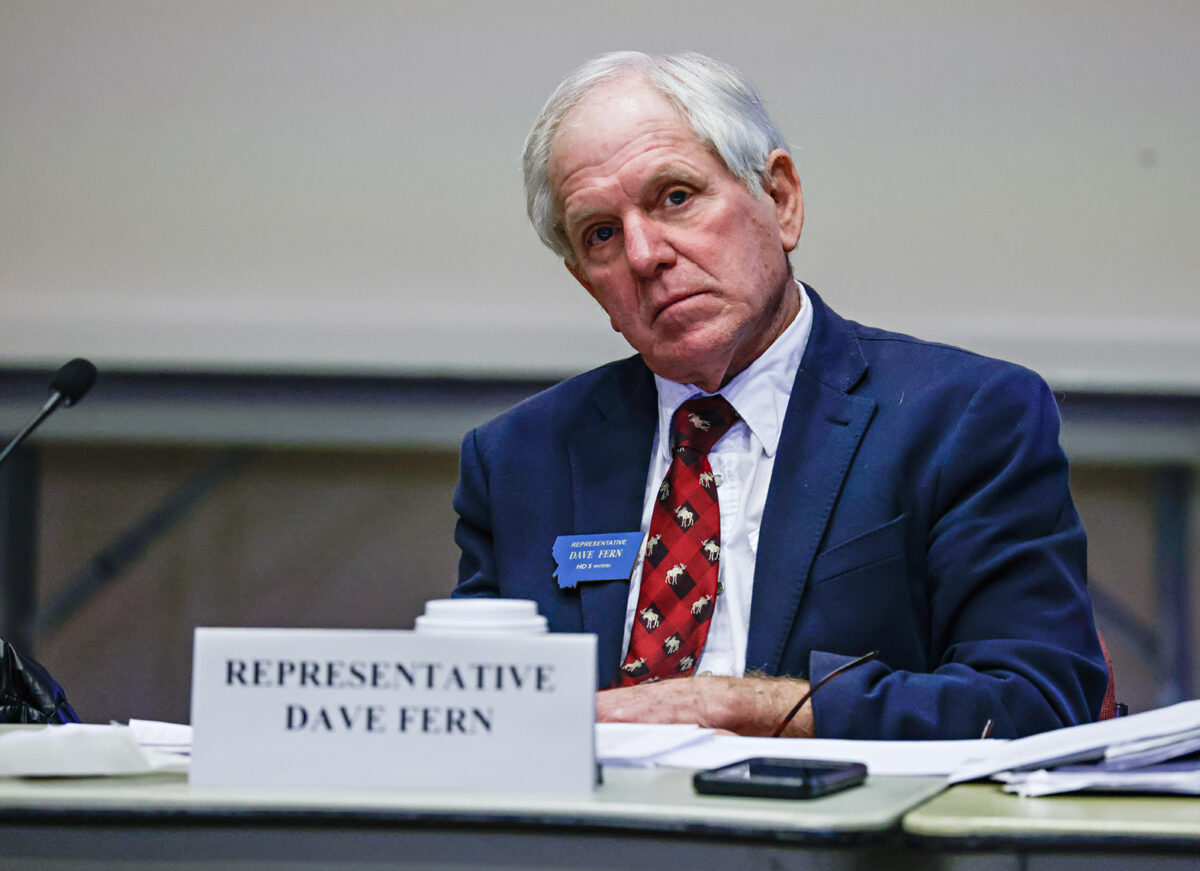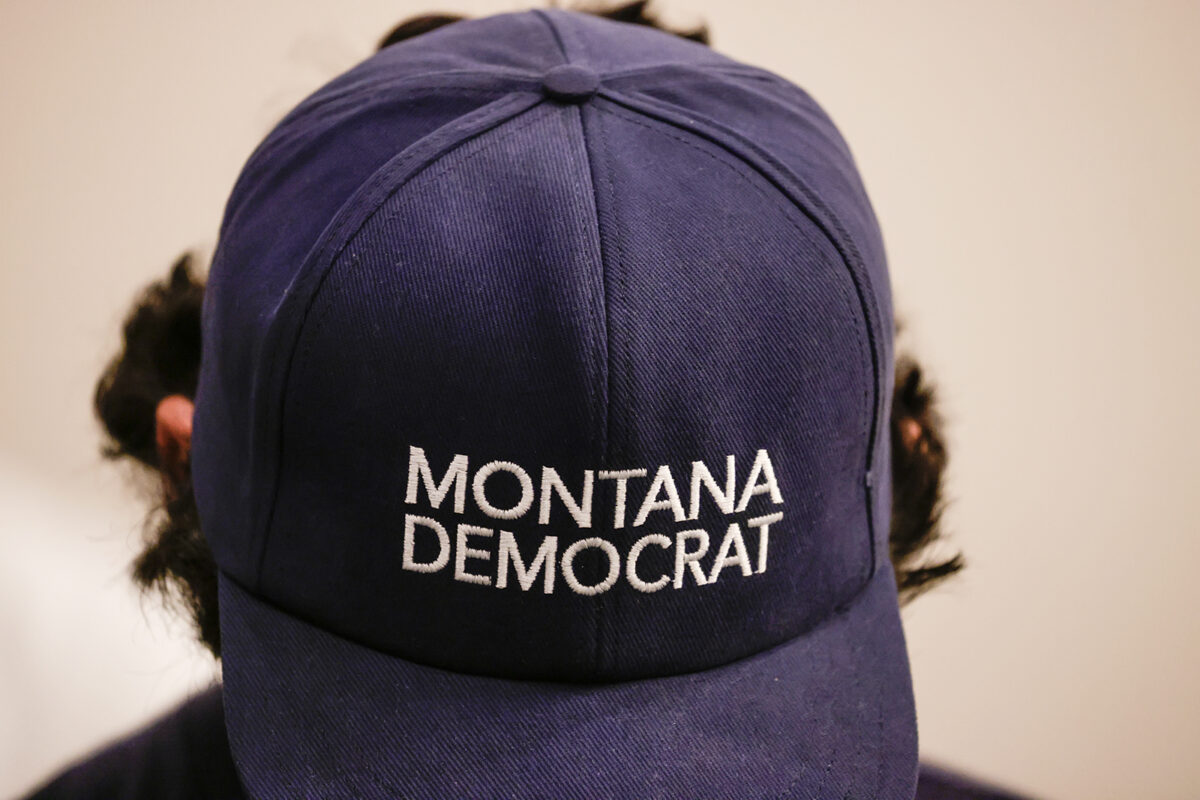Democrats See ‘Opportunities for Bipartisan Collaboration’ in 69th Legislature
After picking up 12 seats this election cycle, Montana Democrats anticipate they will have more power to influence policy this session, albeit still from the minority
By Denali Sagner
After picking up two seats in the state Senate and 10 in the House this legislative session, Montana Democrats see room for cooperation with the Republican majority as they aim to get a number of policy priorities across the finish line in the state capitol.
The 69th Montana Legislature commenced on Monday, when 150 lawmakers from across the state convened in Helena to take the oath of office and begin work on the months-long task of passing a budget and ironing out policy qualms from Medicaid expansion to public school funding.
Though still a significant minority in the Legislature, Democrats this election cycle gained ground in both legislative chambers following a decennial redistricting process that reshaped the state’s legislative boundaries.
Democrats say their increased presence in Helena will help them shape critical legislation, especially as Republicans contend with divides within their own party.
“I see opportunities for bipartisan collaboration on almost every topic we address in the Legislature,” Minority Whip Jonathan Karlen said on Tuesday.
“All of our members are actively reaching out to Republicans and saying, ‘We want to work together,’” he said. “We want to hear their ideas, and we want to come up with the best possible policy.”
Though Republicans have held a majority in the Legislature since 2009, intra-party debates between moderates and hardline conservatives have bled into negotiations over the years, revealing rifts in the party’s vision for the state. The Conservative or Republican Solutions Caucus, a group of moderate-leaning Republican lawmakers, has sided with Democrats on issues like Medicaid expansion and labor rights in the past, and has drawn ire from ultra-conservative members of the GOP. Gov. Greg Gianforte has, too, faced backlash from his party’s more conservative faction after endorsing a number of moderate Republicans in last spring’s primary elections.
Last session, the GOP’s veto-proof supermajority made it difficult for Democrats to find political leverage. Now, with the supermajority broken, they believe they can ally with their Solutions Caucus colleagues on tax, healthcare and education policy.
“It’s always helpful to have bigger numbers,” House Minority Leader Katie Sullivan said.
“I’ve already had conversations with multiple Republicans about getting support on these big ticket issues,” she said.
Rifts within the GOP majority have already begun to emerge. Nine Republicans voted with Democrats on Monday to reject the creation of a full-time committee that would review the executive branch, including the governor’s nominations.
Senate Minority Leader Pat Flowers, D-Belgrade, told lawmakers that a single committee to review executive nominations was unnecessary. Siding with Flowers, Republicans Sen. Daniel Emrich, Great Falls, and Sen. Jason Ellsworth, Hamilton, said the committee would be too powerful and that there would not be enough work to justify its existence as a full-time body.
Speaking about the rules debacle, Sen. Dave Fern, D-Whitefish, said, “It’s an indicator of the potential kind of breakup within the majority,” adding that the split has “now been established pretty early.”
Fern, who has been known for his bipartisan work on tax policy and behavioral health, said the GOP’s substantial majority can be harnessed to get the party’s goals over the finish line, or can be a cause for internal bickering.
“Will it be seen as an opportunity or an obstacle? In some ways, it is yet to be determined,” he said.

At the top of Democrats’ policy priorities is lowering property taxes, which skyrocketed in 2023 after a pandemic-era population boom drove up property values across the state.
Republicans and Democrats alike ran on platforms of reducing property taxes this past election cycle, and Democrats now say they plan to introduce a three-pronged property tax reduction plan.
Per Karlen, the minority whip, Democrats plan to bring a homestead exemption that would provide a $50,000 direct property tax reduction for primary residences and a $200,000 reduction for some small businesses. The Democrats also plan to introduce lower property tax rates and a tiered rate structure, as well as a housing fairness tax credit that would consider residents’ income when producing property tax bills.
In his $18 billion budget released in November, Gianforte proposed a homestead exemption that would reduce property taxes for 215,000 primary residences by 15% and 32,000 small businesses by 18%. The governor has also proposed lowering the state’s top-bracket income tax rate, expanding the earned income tax credit and reducing the state’s business equipment tax.
The governor in his budget adopted some of the recommendations put forth by his statewide property tax task force, which delivered a slate of recommendations over the summer after months of meetings.
Karlen said he sees synchronicity between the Democrats’ tax proposals and the governor’s budget.
“We’re bringing a lot of really good ideas to the table,” he said.

Also key for Democrats is the reauthorization of Medicaid expansion – a program that extends Medicaid coverage to adults with incomes of up to 138% percent of the federal poverty level, or around $21,000 for a single person.
After months of offering little information about whether or not he would support Medicaid expansion reauthorization, Gianforte’s budget included the reauthorization of the program with a few strings, such as work requirements for some recipients.
For Democrats, the governor’s preliminary support for reauthorizing Medicaid expansion signals an opportunity.
“If we do not renew the program, it will kick tens-of-thousands of people off of their health insurance,” Sullivan said. “There are a number of Republicans that are OK with this, but there are also a number of Republicans that don’t want this to happen.”
Several conservative Republicans from the Flathead Valley, including Kalispell Sen. John Fuller, Kila Sen. Carl Glimm and Kalispell Senate President Matt Regier have criticized Medicaid expansion, and Regier in November told the Beacon “there’s obviously a sentiment” that the program not be renewed.
Yet Medicaid expansion has seen support from more moderate Republicans, many of whom describe it as economically advantageous for the state and a lifeline for rural healthcare systems.
The federal government covers 90% of the cost of Medicaid expansion, and the state covers the remaining 10%.
Lawmakers signaled a number of other policy issues that may come to the forefront this session, including judiciary reforms, transgender rights and education funding.
Fern said he anticipates numerous Republican efforts to curb the power of the judiciary, which the GOP has accused of having liberal leanings and interfering with legislation including abortion restrictions and voter identification laws.
“Of course, I have to say to people, we vote for judges, and every 20 years we have a chance in the state to do a constitutional convention that we vote on. And, we have numerous constitutional initiatives. So it’s not like the people don’t have choices and access to lots of information,” Fern said regarding the judiciary.
However, he added, “The issue is very real, and it’s not like I want to minimize it,” saying he is “sympathetic to [Senate President Regier’s] concerns” about judicial reform.
Regier has said the Montana Supreme Court has “perverted” the judicial process and strayed from the state Constitution in recent rulings.
“That’s the beauty of it. We bring different priorities to the session. We move on with it,” Fern said.

Despite their increased presence in the capitol, Democrats will again face an uphill battle as Republicans control both chambers of the Legislature and every elected statewide office, including attorney general, superintendent of public instruction and state auditor.
During his inauguration ceremony on Monday, Gianforte told attendees, “For the first time in nearly 130 years, Montanans have entrusted Republicans with every statewide office, both chambers of the Legislature, and every Congressional seat. Ultimately, Montanans spoke loud and clear. They want leadership that delivers.”
Sullivan, the House minority leader, said things are “so far, so good” for the minority party.
“We have more ability to influence and leverage policy, and I believe that that’s already being reflected in some reaching out across the aisle.”